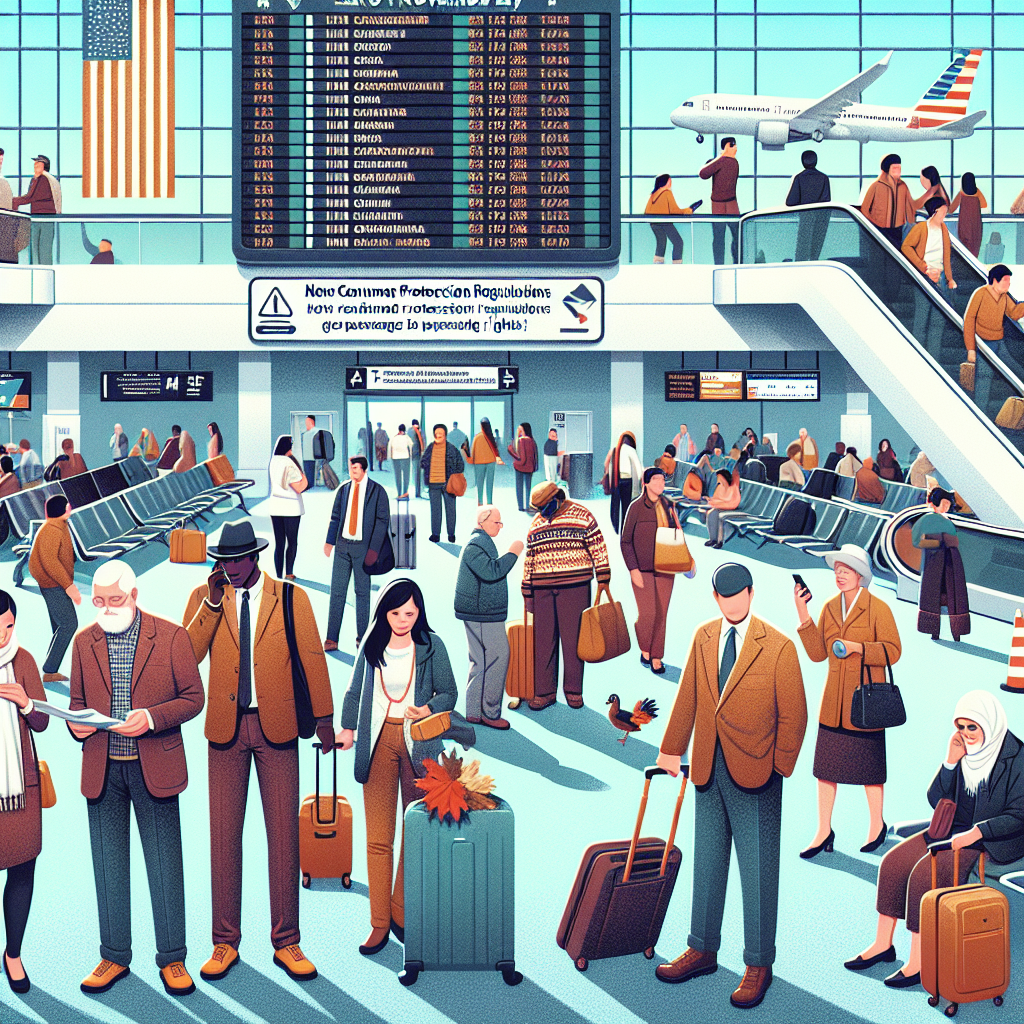On Thursday, November 28th, which is Thanksgiving Day in the United States, it is expected that Americans traveling this year will set a new record. Flight delays or cancellations are inevitable. However, with the new consumer protection regulations previously introduced by the Department of Transportation (DOT) providing easier refunds, coupled with thorough preparation before departure, passengers still have hope for a relatively relaxed and enjoyable holiday trip.
According to the American Automobile Association (AAA), 79.9 million Americans are expected to travel during Thanksgiving in 2024, going more than 50 miles away from home to participate in various activities, an increase of 1.7 million people compared to last year. Transportation Secretary Pete Buttigieg mentioned that this holiday season might become the busiest travel day in American history.
Reports from Reuters indicate that bustling crowds at airports will bring significant pressure to systems and passengers, including queuing for security checks, staff shortages, equipment malfunctions, and potential flight delays and cancellations.
However, there is good news for consumers: the new DOT regulations for airline passengers’ refunds are now fully effective. Whether it’s a domestic or international flight that gets canceled or delayed for a certain period, passengers have the right to receive automatic refunds.
To ensure passengers have a pleasant holiday journey, Reuters compiled expert advice:
In the past, passengers may have had limited luck when it came to refunding flights with issues.
But now, this right has been enshrined in law.
On April 24th, the DOT announced this new rule, which came into effect at the end of October, requiring airlines to immediately offer customers automatic cash refunds for amounts owed. The new regulations make it easier for passengers to receive refunds when airlines cancel or significantly change flights, experience substantial delays in baggage delivery, or fail to provide purchased additional services.
John Breyault, a travel expert at the National Consumers League, said, “If a snowstorm hits Chicago and you can’t make it to Thanksgiving dinner, airlines should now automatically provide a refund without you having to jump through hoops.”
It is important to note that this only applies to situations where you seek a refund rather than rebooking. If you have to rebook at the last minute after requesting a refund, you might end up spending a significant amount of money.
Other key points: the new regulations apply only to flights booked after October 28th. Furthermore, these rules only come into effect when domestic flights are delayed by at least three hours and international flights are delayed by at least six hours.
During holiday travel, especially when flights are subject to variability, remember not to turn off your phone or set it to silent mode to avoid missing important information.
Teresa Murray, director of consumer advocacy at the US Public Interest Research Group, emphasized the need to “ensure airlines can send you text messages and emails and have their apps installed on your phone”. “Because if something happens, you need to know soon – if you don’t respond to them, it’s on you.”
Regarding the provision of meal or hotel vouchers due to flight interruptions, different airlines have made varying commitments to the Department of Transportation.
“Airlines can decide on their own policies, but they must clarify what they will do for passengers in case of delays,” Breyault said. “This is legally enforceable.”
Passengers can find relevant information on consumer rights and airline regulations on FlightRights.gov, where information from the top ten US airlines is listed. It’s ideal to do research before heading to the airport to be prepared for any surprises.
Remember, there is a distinction between events that are controllable and uncontrollable. For example, airline staff or maintenance issues are classified as “controllable,” while hurricanes are clearly “uncontrollable”. In such cases, the airline’s obligations to travelers are not the same.
Customer service responses from airlines also vary: after experiencing an issue, a passenger’s customer service experience might depend on the personnel they interact with. Murray pointed out that, “Remember, airline representatives are also ‘people’ just doing their job – they might feel stress too, so it’s important to remain polite.”
Murray emphasized that airline customer service representatives engaging with passengers seeking assistance “did not cause your travel issue – so don’t treat them poorly.”

